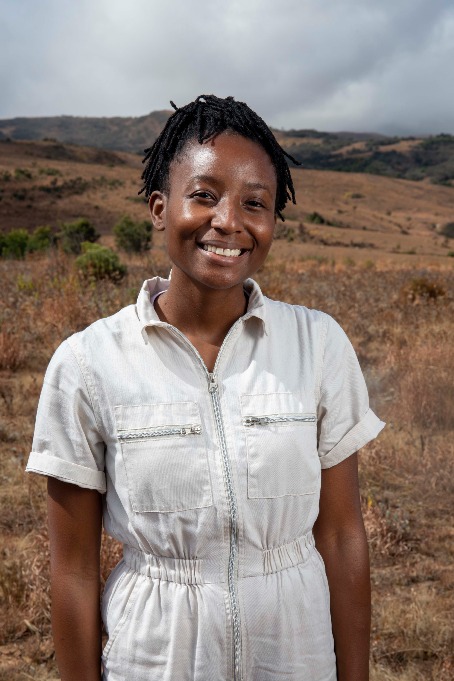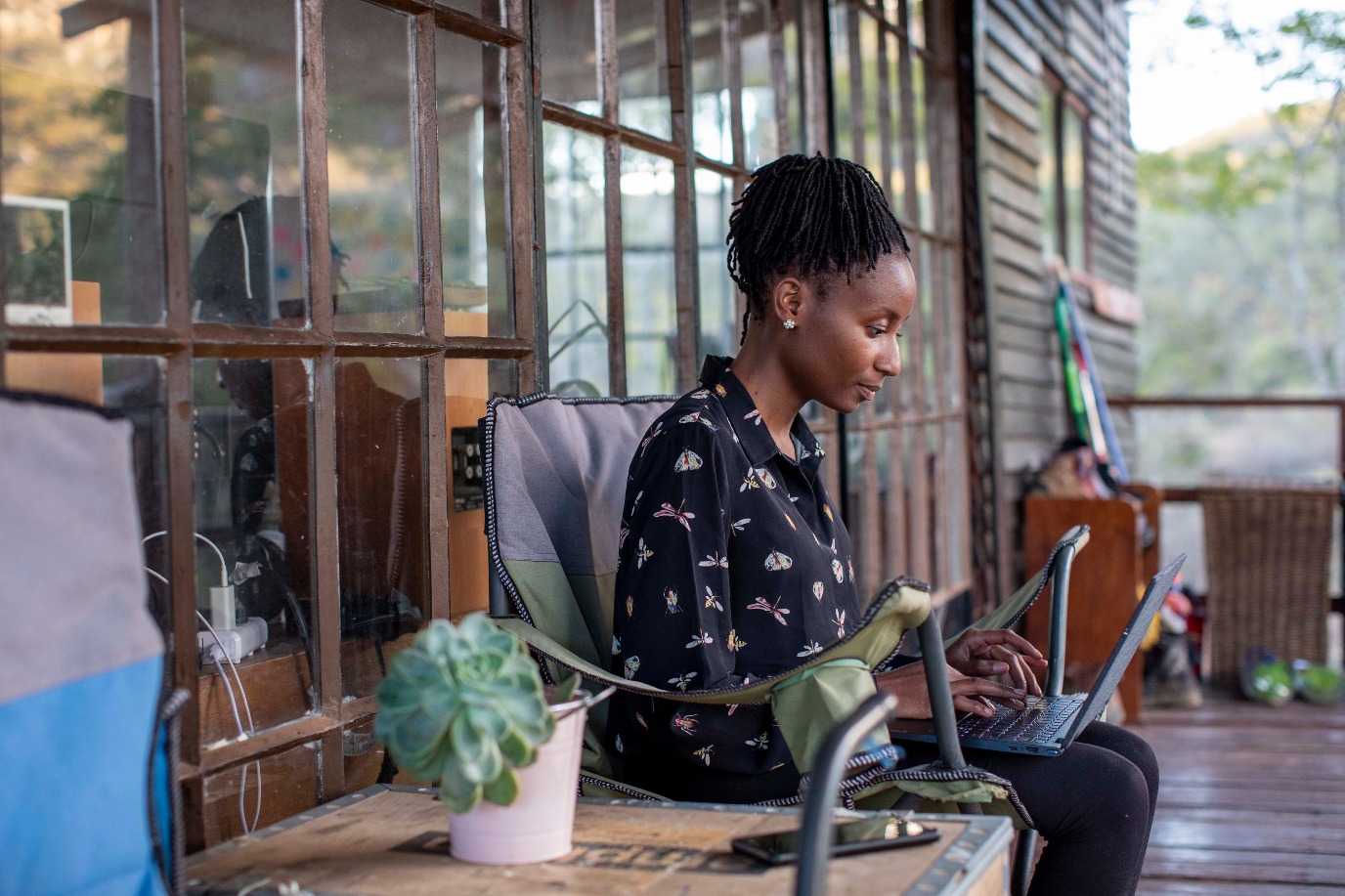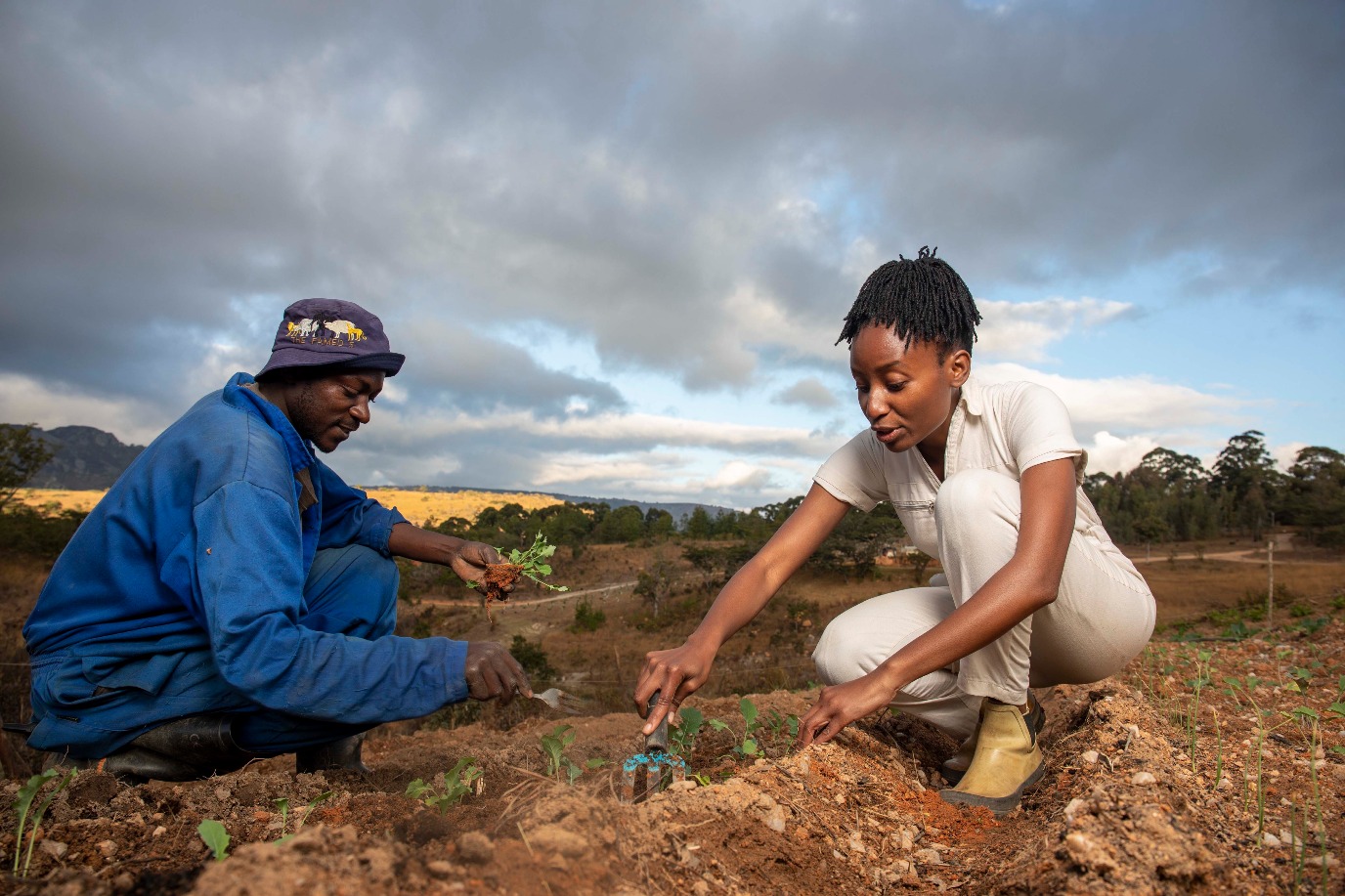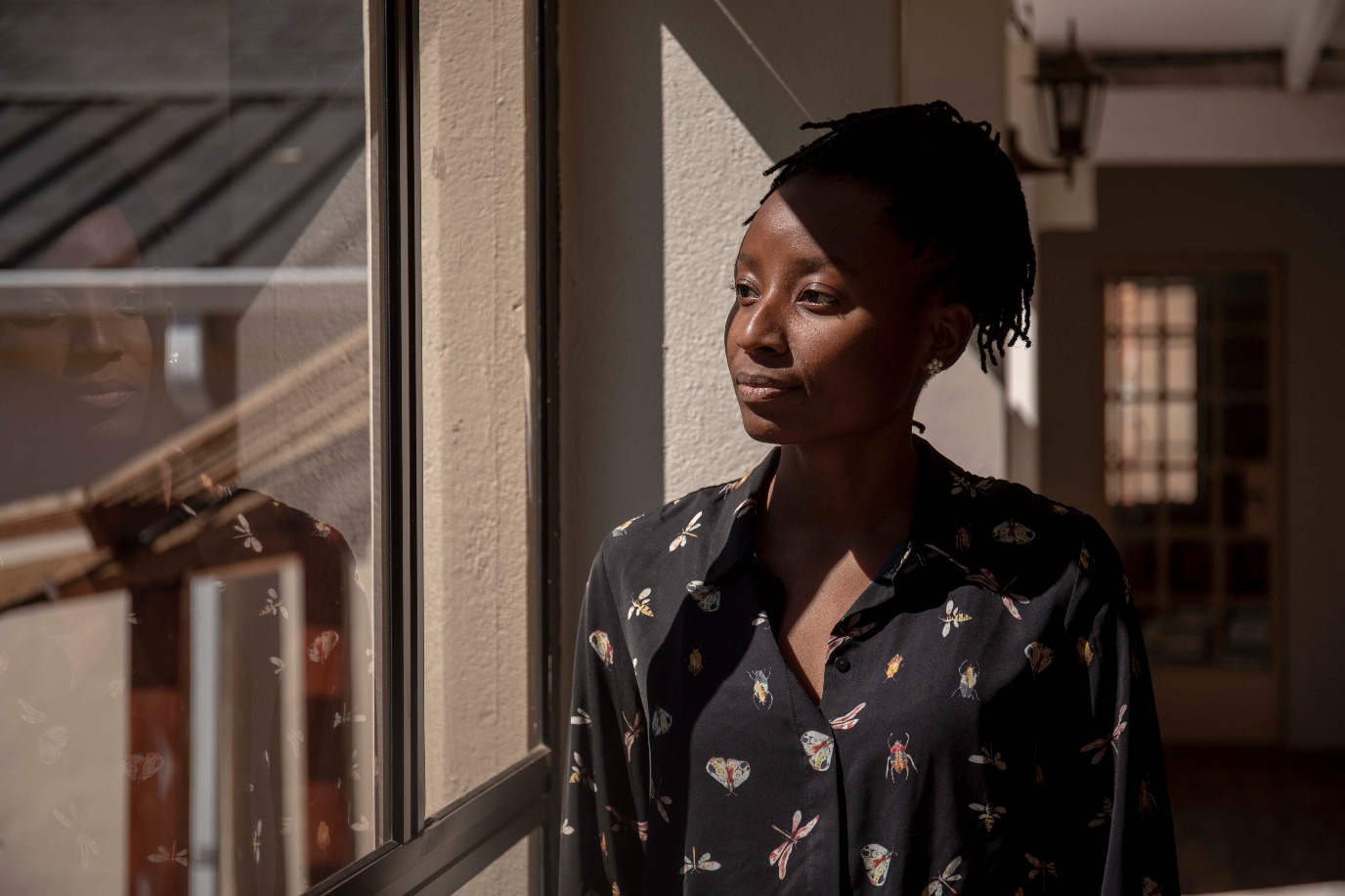Alumnus of the Year 2023: Taku Mutezo

Taku Mutezo from Zimbabwe is the Alumnus of the Year 2023 at the UG. She is an international environmental lawyer with impressive experience on boards and councils. The red thread in her work is her fight for nature and against international animal smuggling. ‘The more inspired and passionate you are, the less something feels like ‘work’.’
Text: Nienke Beintema / Photos: Cynthia R. Matonhodze
The University of Groningen has been presenting the annual Alumnus of the Year- to an exceptional former student since 2009. The prize is ‘an expression of appreciation as well as encouragement’, says the University, ‘for a former student who has made an exceptional contribution to society, science, sports, or culture; who is an inspiration to others and holds great promise for the future.’
2023’s winner, Takudzwa (Taku in short) Mutezo from Zimbabwe, likes to look at matters differently: it is her hope that exactly because she has won the prize, and with the speech she will give at the opening of the new academic year, she will become an inspiration to others— Particularly to other international students who, like her, want to make the world a better place through their UG programme. ‘To inspire and empower young humans—that is what I really hope to do in Groningen in September’, she says during a video call from her office in the remote Nyanga area.
You have an impressive track record as a lawyer, environmental advocate, Young African Leader, Women for the Environment Fellow... and now also as a biological farmer. With which of these roles do you identify the most? What is your main mission?
‘Ah, that's a tough question! I am constantly evolving. I mainly see myself as a nature person who loves everything to do with the Earth. That is why I dedicated my law degree to conservation: so, I can keep enjoying nature, and my generation and future generations will also be able to do so.

What exactly does your legal work entail?
‘In my country, Zimbabwe, nature and wild animals are the property of the people, represented by the government. If a crime is committed against animals or nature, it is a state affair. I offer legal advice to police and the Court of Justice, in order to support nature-related and environmental cases. The eventual goal is to improve the efficiency and efficacy of the authorities. That can only happen if they realize the importance of nature-related and environmental cases. For instance, I help them understand the ecological and economic value of nature and to find the right legal means to fight for that.
What challenges play a role in this?
‘Only a few years ago, most court cases concerning poaching and animal smuggling mainly revolved around small-scale poachers who were trying to earn their daily bread. Nowadays it is increasingly about highly advanced animal smuggling: an international business worth billions. Those in charge are regional players with military techniques and weapons. They are very hard to fight. One strategy we employ is to train and educate local communities living in that nature. What is most important is that many more people will become fully aware of the advantages of wildlife and of the long-term consequences of poaching and animal smuggling.
Are things heading in the right direction?
‘I am optimistic, yes. I see an increasing number of young people becoming enthusiastic about visiting and protecting our National Parks. More and more young people are also getting involved professionally, which is very encouraging. In the past, only the rich were able to afford concerning themselves with nature and nature protection in Zimbabwe. Now schools and whole communities are getting involved. And the government is also taking matters more seriously. We are seeing all sorts of enormous improvements in law and law enforcement. So yes, things are definitely moving into the right direction.

How did you get the idea to study Law? And why did you choose Groningen?
‘My tribe is part of a minority, and physically I have been seen as small my whole life. That’s why I've always felt a connection to underdogs. I feel called to fight for those who are not heard. On top of that, I spent much time in Hwange National Park as a child, where my father, ironically, worked in mining. I grew to love nature because of my time in the Park. When I started looking into combining those two passions—fighting for the underdog, and protecting nature—I read about International Law, about the International Court of Justice, and about organizations such as the Wildlife Justice Commission. Then I realized: oh my gosh, this is all happening in the Netherlands! This is where I should be going! And within the Netherlands, Groningen has one of the best International Law programmes. That’s why I went there, in 2013.’
And have your studies given you what you were expecting?
‘Absolutely. For example, I worked at the Wildlife Justice Commission in the Hague for six months. And I was a research assistant for the British Professor Tim Wittig, for whom I mapped international smuggling routes. All those experiences, and in fact my entire stay in the Netherlands, have further fuelled my passions and have had such an enormous influence on my career. The fact that I was elected to the University Council, and that I got to contribute to shaping UG policy, has also given me the confidence to step into that world and say: I’m going to change things. The world of international animal smuggling can be quite frightening at times if you’re young, but these years in the Netherlands have shaped who I am now and what I am capable of.’
Do you ever think of moving back to the Netherlands?
‘I still consider the Netherlands as my second home, but I feel a calling to be in Zimbabwe and to commit myself to my community. I see so many young people who move away because the grass seems greener elsewhere. But there is so much work to be done here: building up our land, building up our continent ... I want to share my knowledge and experience here. Besides, there is no place I’d rather be than here, in this nature, whether it’s in a National Park or on my own biological farm. This is where I experience the most peace.’
Where do you find the time for your farm, next to your busy legal work?
‘The more inspired and passionate you become, the less something feels like ‘work’. When I am fed up with legal work for the moment, I step outside to see how my cabbages are doing, if they are growing well, if our natural pesticides and horse manure are working. To me, a combination of these two careers is a lifestyle, not work. I am living the life I am called for.’
Mutezo is quiet for a moment, stares out the window, and then decides: ‘My calling is simple: to leave the Earth behind in a better state than I found it. Helping other people to find the balance between animals, humans, water, and trees. And to see how they all flourish.’

More news
-
15 September 2025
Successful visit to the UG by Rector of Institut Teknologi Bandung
